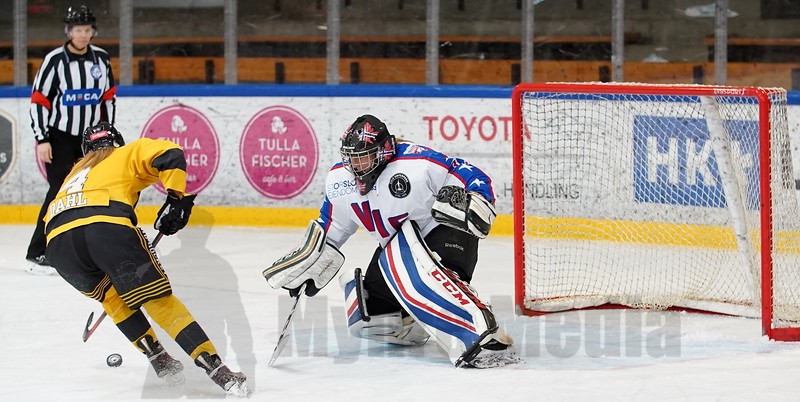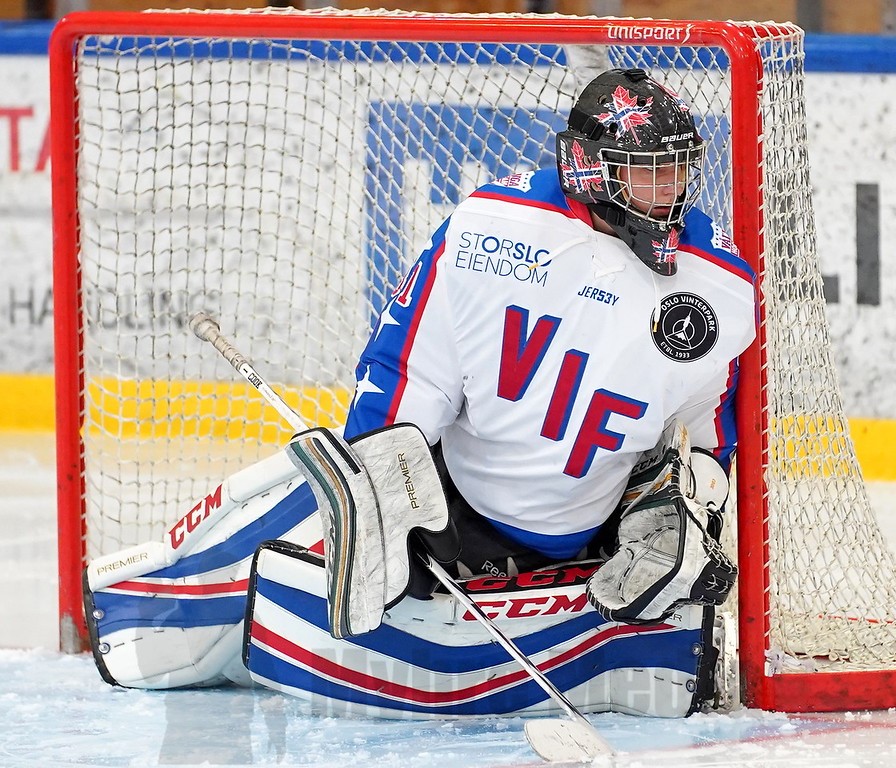After some contract hassles and a couple of plane flights, St. Thomas University alumna Taylor Cook is slowly achieving her pro hockey dreams. This month, she moved to Oslo, Norway, where she plays as a goaltender for Vålerenga hockey, a dominant force in Norwegian hockey since the 1960s.
“[It’s been a] pretty easy transition for the most part,” Cook said.
Cooke is three weeks into her time with the league. While she enjoys playing for the team, she’s taking some time to get used to a few minor differences.
“It’s a different style of hockey, plus, the team is in a rebuilding stage right now, so we’re working with the girls and the coaching staff to have more structured practices,” she said. ”
We practice about three times a week and workout twice a week and games are typically every other weekend.”
One of the main differences to Norweigian hockey compared to North American, Cooke said, is the speed of the game.
“It’s a little bit slower compared to what I’ve been used to playing university hockey,” she said.
“The teams are pretty small and some of the girls are fairly young, so they’re still in the learning process to hone their skills.”
Starting off
Cook has had a hockey stick in her hands since she was three years old. With the encouragement of her dad, she started playing with the Junior Stoney Creek Sabres in Hamilton, Ontario at age 18. She said it sparked a love for the sport, playing with the Sabres for two seasons.
“I’ve always been a very competitive person when it comes to hockey and I think the competitive side of it is what makes it more fun,” she said.
“It’s just fun to be able to push yourself to be better every day and to have teammates to help you along the way.”
After goaltending with the Sabres for several years, Cook was recruited by Tommies coach Peter Murphy. She played with the team for five years, which she said are some of the best years of her hockey life.
Cooke graduated with her bachelor of arts degree in May 2019 with a double major in political science and environmental studies. She said that her time at STU helped her develop a work ethic that is crucial for her career.
“I learned how to work hard when I was there,” she said.

“I learned to take responsibility for my actions on and off the ice and made sure that I was putting in as much effort as I could to come out on top with a win and to have my teammates’ backs.”
“It’s truly my passion.”
But she said it was during her last two years of university when she realized she wanted to pursue professional hockey.
Cook said she knew some people who had planned on playing in the Canadian Women’s Hockey League but since the league folded, plans had to change.
But Cook wasn’t discouraged. She applied to the free agency in the National Women’s Hockey League and was given a chance to play for a team in New Jersey, but declined, citing her reasoning to the United States’ political climate and the pay.
The challenges of women’s hockey
Cook said that there are many challenges involved with pursuing professional hockey as a woman, from the wage gap to lack of resources available.
“When the [Canadian Women’s Hockey League] folded, seven teams of really talented and skilled girls had nowhere to go and play,” she said.
Cook said it’s difficult for the players, where they have to have full-time jobs at the same time as being a full-time athlete.
“It’s an unfortunate circumstance because in men’s hockey, being an athlete is a full-time job and that’s what they get paid to do. They get paid good money, have proper training facilities and sponsors, so it’s a very drastic difference.”
Cook knows she’ll be playing in Norway next season. Beyond that, only time can tell, but continuing professional hockey is an option.
“I’d like to keep playing a few more years while my body is still able to.”

